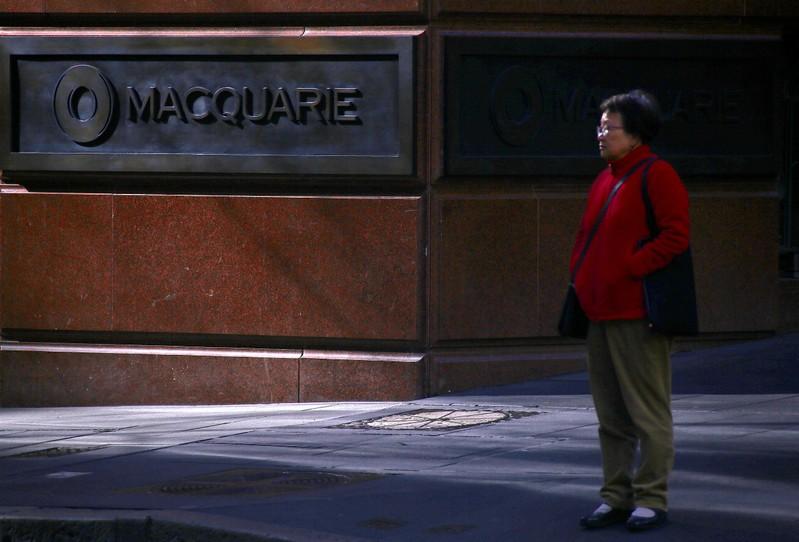Australia's Macquarie Group Ltd on Thursday announced plans to dismantle its shrinking financing unit, Capital and Asset Finance (CAF), once a key driver of profitability, as it confirmed guidance for a slightly lower profit in 2020.
At its annual shareholder meeting, where the country's largest shareholder group plans to vote against its remuneration plans, Chief Executive Officer Shemara Wikramanayake said lower volumes at the unit had contributed to a weaker performance in the first three months of the year, compared to fiscal 2019.
The quarterly contribution to full year profit from its corporate asset finance, asset management, and banking services units were down from the first quarter last year, she said.
The bank did not disclose the operating profit number for the first quarter. In May, it posted a record A$2.98 billion for 2019, up 16.6%, and said earnings in 2020 would be "slightly down".
Lower loan volumes hurt the bank's financing arm, while the timing of performance fees and higher expenses hit its asset-management business, Wikramanayake said.
That was partly offset by the profit contribution from units Macquarie classifies as "market facing", including global commodities trading and Macquarie Capital, its investment banking unit.
"Those were up on the comparable quarter, and that was primarily due to the strong performance of the commodities platform in our Commodities and Global Markets, which was partially offset by lower investment-related income," Wikramanayake said at the AGM.
Following years of shrinking volumes and profit growth at the bank's CAF - a business analysts considered opaque, calling it a "black box" - Macquarie will merge the unit into its other businesses.
In the years after the global financial crisis, the unit accounted for almost a third of Macquarie's earnings, driving growth fuelled by bets on largely non-investment grade debt.
But as record-low interest rates make turnaround investment opportunities harder to find, CAF will no longer be a separately managed unit of the group from Sept. 1, 2019.
Instead, CAF's divisions will merge into Macquarie's other units: principal finance will move to Macquarie Capital, transportation finance will move into its asset management unit, and asset finance will move into markets division.
The firm's half-year results would be re-stated to reflect the disintegration of CAF, Wikramanayake said.
Macquarie's AGM comes as Australian banks are facing a new trend of heightened shareholder scrutiny following a public inquiry into the financial sector last year that found widespread wrongdoing and serious flaws in the management of compliance and risk.
But Macquarie, which has posted record profit every year since 2013, has largely been spared the kind of pressure for greater transparency that shareholders have applied to Australia's four big retail banks.
At the meeting, the Australian Shareholders Association (ASA) will vote to reject the company's executive pay plans because of what it calls overly achievable performance targets and confusing information about the bank's generous bonus policy.













